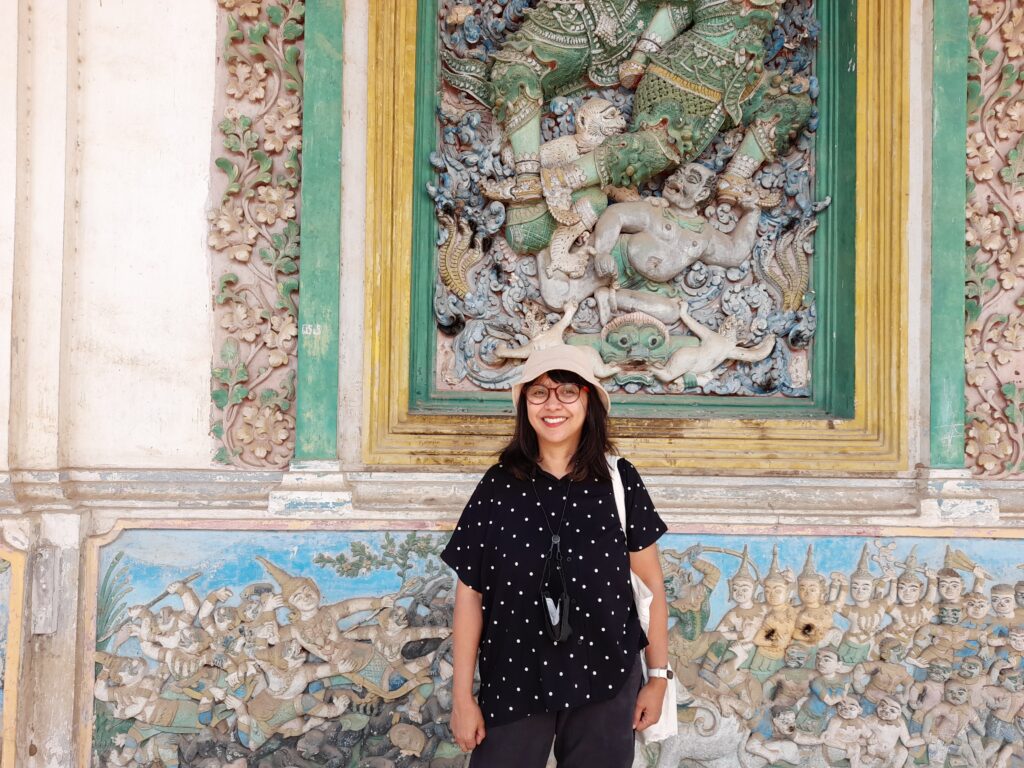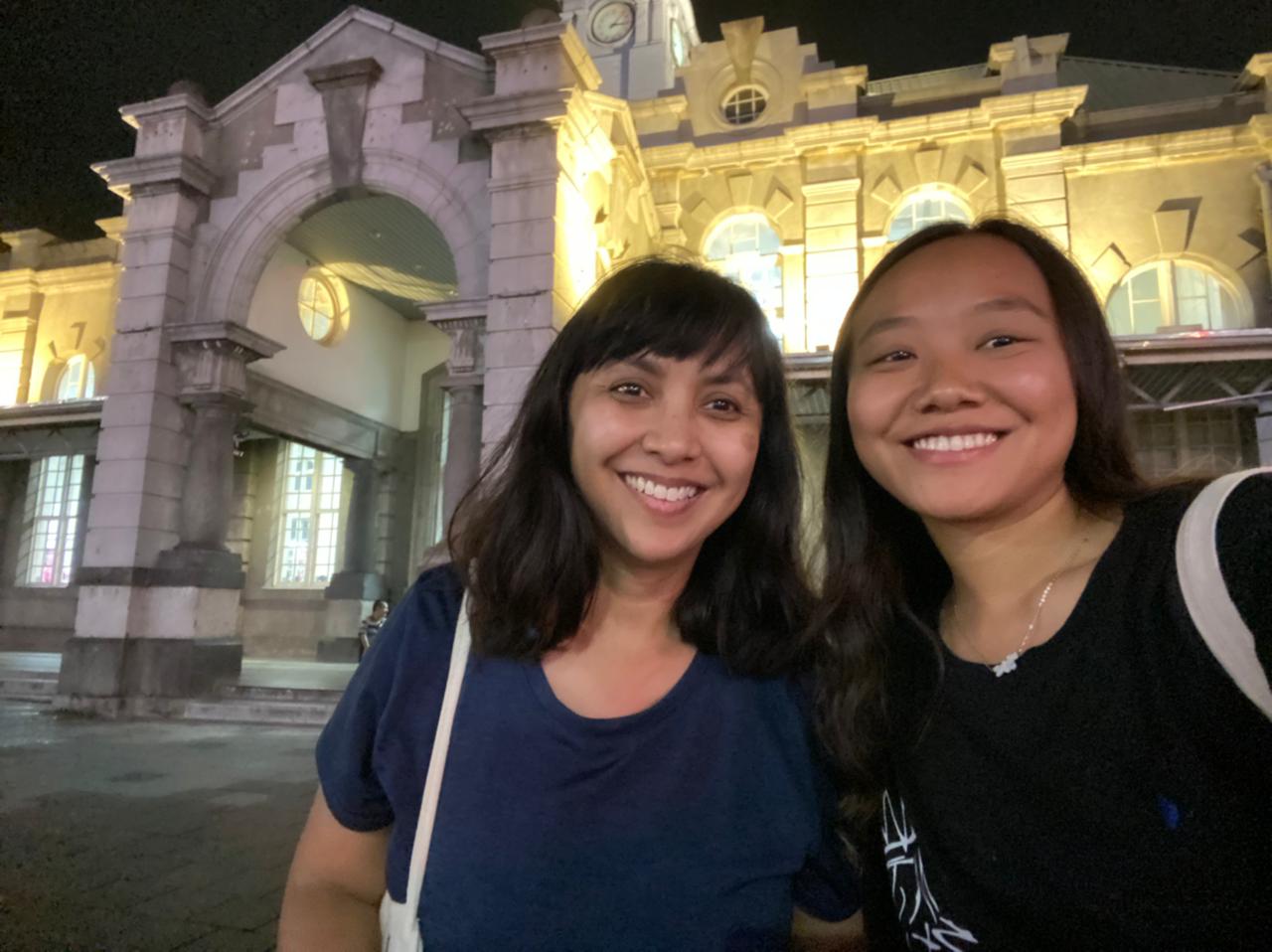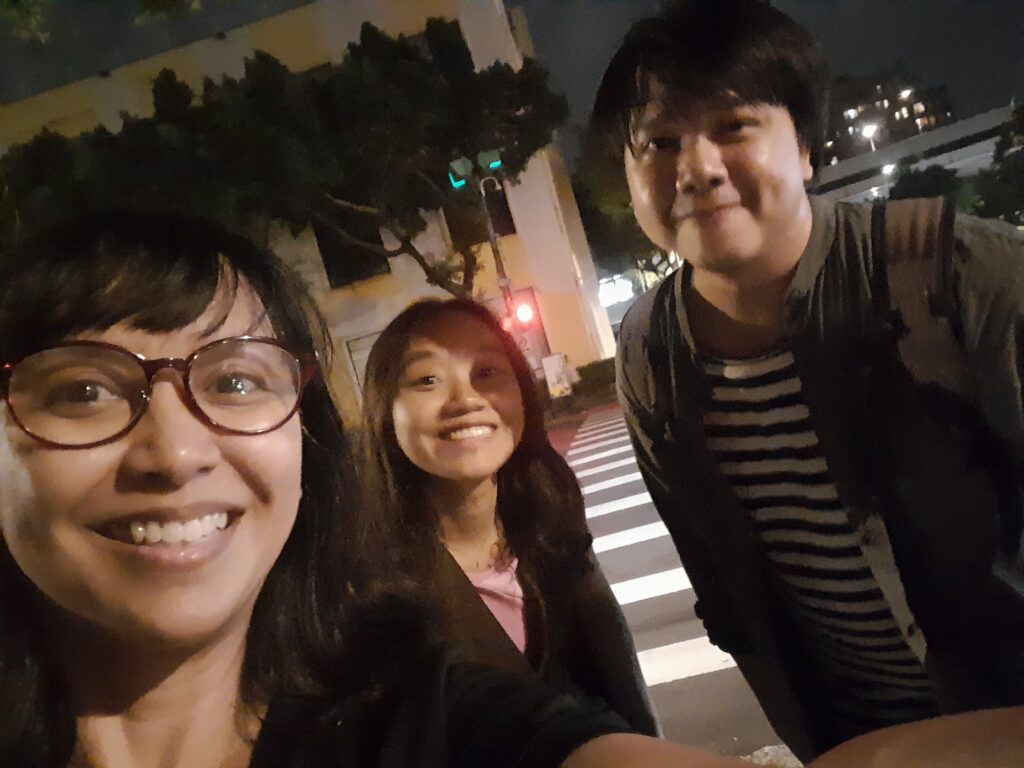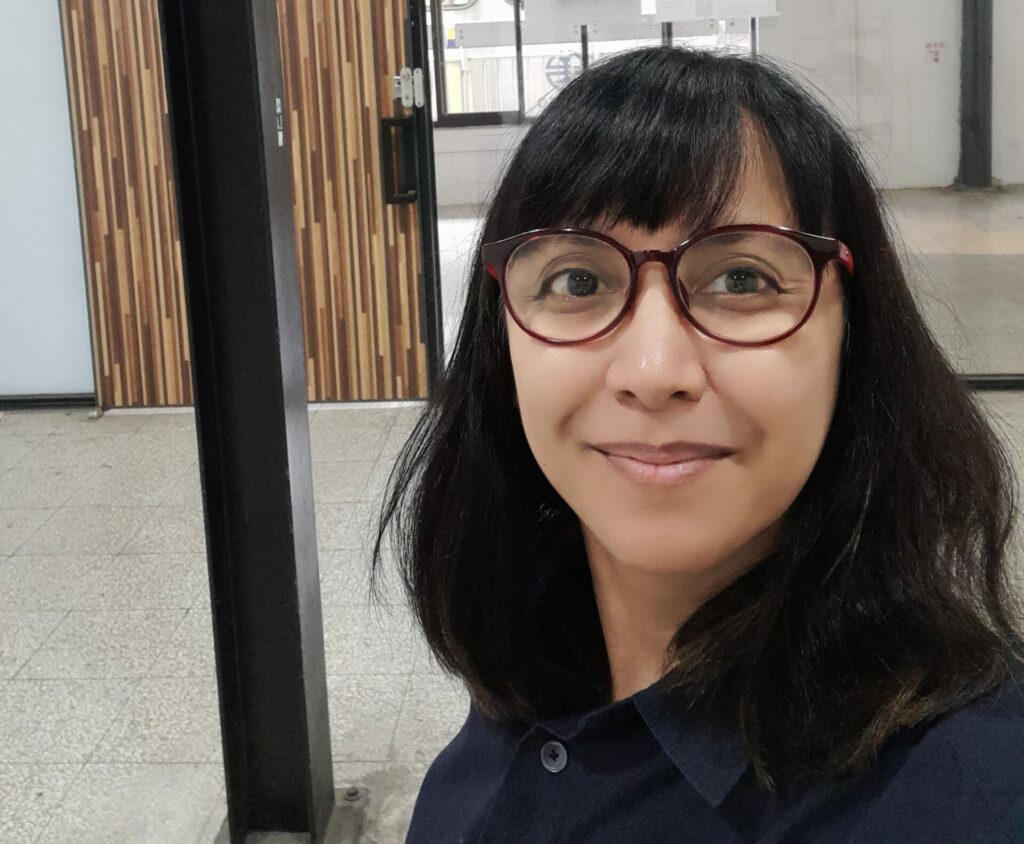Professional Exchange 2023: Observe with quiet excitement
After the first two weeks staying at Taipei Artist Village (TAV) together with other fellow artists, Nu Nu and Wasu, who joined MCH Professional Exchange 2023, Lyra continued her residency for two weeks at Art Site Railway Warehouse in Hsinchu before transferring to Cambodia, where she spent two months mainly based in Battambang, the home of Phare Ponleu Selpak Association. Nearly two months after returning home, Lyra took some time to share her reflections on the experience of her exchanges, and where she finds herself as we ease into 2024 .




MCH: Now that you have been home for a few weeks and are looking back on your exchange program, what would you say has been the impact of the experience on you both personally and professionally?
I would say the impact of such opportunities vary according to where one is emotionally and mentally at. Had this exchange happened before 2020 –– during the pre-pandemic era –– I may have been a slightly different person with slightly different expectations in life. To experience this in 2023 is to see things with more nuanced lens. While I’ve always been observant and attentive, I feel that this trip made me more extra of those. But because of the pandemic, I also became more self-conscious and wary.
I actually wrote about my experiences in this program.
Here’s a link to it: https://coverstory.ph/artist-researching-experience-curves-in-taiwan-and-cambodia/
The trip(s) made me delve deeper regarding my conceptions of value. Coming to terms with my host countries’ individual (and usually tumultuous) histories vis-à-vis my own’s, while also learning about Wasu’s and NuNu’s, prodded me to further ask myself what things in life should I consider more important now.
(And witnessing with the rest of humanity that after three months there’s still no permanent ceasefire in Gaza just makes me all the more dismayed about this kind of world).
MCH: Based on your experiences, what advice would you give artists thinking of undertaking a residency or an exchange within Southeast Asia?
I would tell them (especially the first timers) that any form of travel especially in the structure of an exchange program will invite comparison. Participants will compare privileges related to mobility –– which include vetting issues when it comes to visas. People will compare and contrast life objectives, worldviews, and many more. I would say that to squeeze out all that one possibly can from this travel/learning opportunity, is to first accept there will always be good and bad days in any foreign setting. To observe things with a level of quiet excitement will help cushion unexpected disappointments, as well as, boost simple joys.
For me, the best days came not only from the social connections one gets to have (sure, making new friends are always important), but I also had fun from moments where I got to learn more about another country’s history (although the violent aspects about history is never great). To be southeast Asian and to visit other SEA countries is to not just be limited to the landmark tourist attractions. (Those are wonderful too). It’s also about becoming aware of our neighbor’s policies, social, economic and political histories.
MCH: During the exchange, you also started developing a board game based on navigating life in the arts. Can you tell us a bit more about that?
I had a pleasant experience talking to a variety of stakeholders from the art and cultural industry in Taiwan. Sharing how we each managed to navigate our respective (and intersecting) ecosystems was eye-opening. Inspired by those conversations, and when I had time to think, I began developing a board game when I was already in Cambodia.
The tone of my stay in Cambodia was entirely different from Taiwan. So in trying to make sense of it, I decided to create a contemplative game that explores an individual’s process of choosing or making (ethical) decisions. The game’s framework is based on existing and hypothetical scenarios that resonate with these questions: How do we design a new (art)world? How can we shape a different path? How can we be mobile in that new course ? What do we do when we collide with other worlds/communities — do we occupy and conquer or do we cooperate, collectivize and collaborate?
The way the game player responds to questions will determine her position in the game.
I didn’t have time to finish the board game while I was still in Cambodia. So, I’ve been working on it ever since I’ve returned to Manila.
MCH: Could you share a little more about your upcoming plans?
I usually hit the ground running, so to speak, whenever I return to my home base from elsewhere. I easily jump back into finishing projects within days of arrival. But this time, with the world becoming scarier and messier than it already was, I found myself losing my sense of humor, and being a little more reclusive. Needing a bit of re-direction, I’ve retreated to my cave in order to process things.
Currently, I’m experiencing a different kind of slowing down. In the course of it, I’m deciding to be more purposeful rather than be (constantly) focused on object-driven productions.
Yet, ironically, as part of the necessary object-driven output associated with work, there are projects that I’ve gone back to such as painting because that’s what I do. Except, I’m just slower. I’m in production mode too, for my book called Elsewhere: Writings on Art. If life works out the way I hope it would, the book (published by Grana Books) will be out by March 2024. Yeah, fingers crossed.
This January, I’ll be participating in the 2nd iteration of the Puon Institute where academics, writers and artists present new research and are given feedback. The theme of the workshop for 2024 is called Ecologies of Flourishing and I had proposed to play test the board game there.